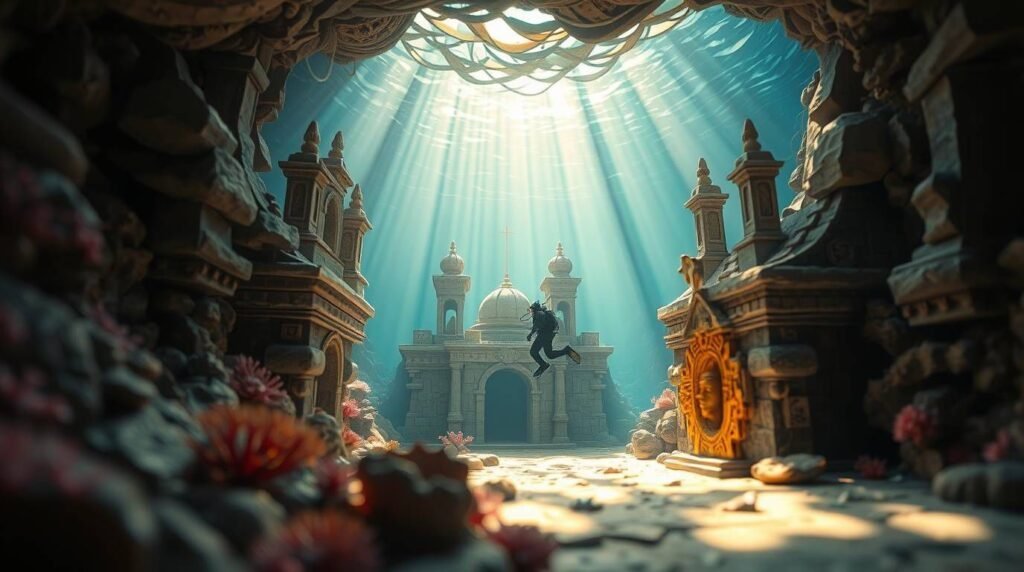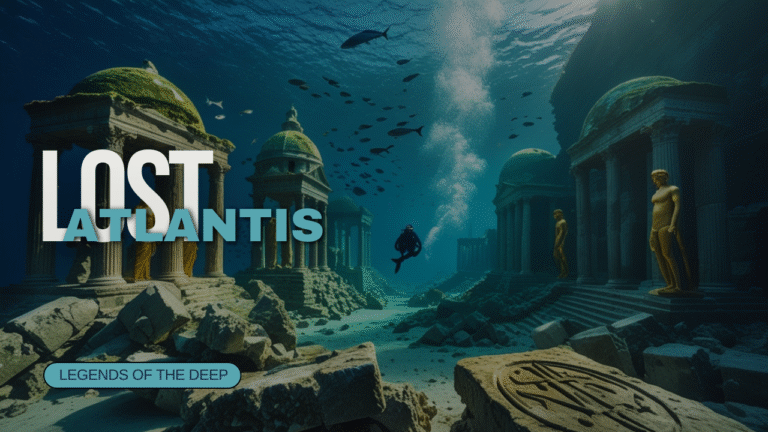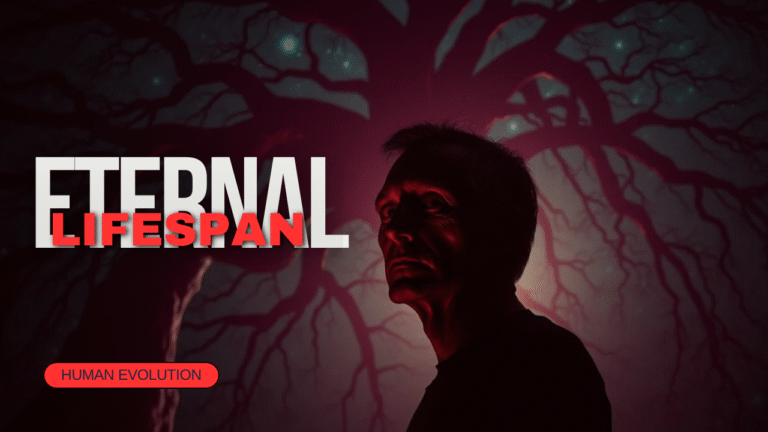What if ancient cities lie beneath the sea?
Ah, dear reader, what an enchanting thought you summon—cities of marble and mystery resting beneath the waves, where columns sleep in silence and forgotten gods whisper through the currents. The idea that ancient civilizations once flourished where oceans now reign has long haunted both science and myth. Let us descend together into those watery depths of wonder and speculation. 🌊🏛️
🕯️ What if Ancient Cities Lie Beneath the Sea?
Introduction
The sea keeps secrets better than any vault. It swallows empires, erases footprints, and yet, every so often, it offers us glimpses—a carved stone, a submerged ruin, a myth proven true. From the fabled Atlantis to the sunken ruins off India’s coast, whispers of lost civilizations beneath the water have lingered through centuries.
But what if those stories aren’t myths at all? What if entire cities—thriving, ancient, and advanced—lie beneath the world’s oceans, waiting to be rediscovered?
Hidden Civilizations Beneath the Waves
All around our blue planet, clues surface like bubbles of truth:
- Dwarka, India – Off the coast of Gujarat, sonar scans revealed ruins resembling streets and temples—possibly one of the oldest known cities.
- Yonaguni Monument, Japan – Massive underwater stone terraces that some believe are man-made, carved by a civilization predating history.
- Pavlopetri, Greece – A submerged city dating back to at least 2800 BCE, astonishingly preserved with roads, homes, and courtyards still visible.
- Cuba’s Sunken Megaliths – Structures deep below the Caribbean waters hint at architecture unlike any known culture.
These are not mere legends—they are archaeological puzzles that challenge everything we know about the timeline of human civilization.
Our Editor’s Thoughts
If I may confess, the thought both thrills and humbles me. The ocean, vast and uncharted, may hold memories older than any scripture or ruin above ground. What if our ancestors were not primitive, but simply… forgotten?
To imagine entire worlds buried under centuries of salt and silence—it stirs in me both wonder and guilt. For while we gaze at stars searching for other worlds, might the first lost world lie right beneath our feet, drowned by our planet’s shifting temper?
Why Would Cities Be Underwater?
🌊 Natural Disasters
Rising sea levels, tsunamis, and earthquakes could have swallowed coastal civilizations whole.
🌋 Geological Shifts
Tectonic movements can drag entire regions beneath the waves over thousands of years.
⚙️ Human Engineering or Catastrophe
Perhaps once, an advanced culture experimented too boldly with nature, leading to its own watery downfall—a cautionary echo for our time.
Pros and Cons of Discovering Sunken Civilizations
🌟 Pros
- Historical Revelation: Could rewrite human history, pushing civilization’s origins far earlier.
- Technological Insight: Discoveries may reveal forgotten forms of architecture or lost materials.
- Cultural Connection: Proves how fragile human achievement is—and how resilient curiosity remains.
⚠️ Cons
- Environmental Risk: Excavations could disrupt delicate marine ecosystems.
- Historical Conflict: Such findings might challenge national or religious narratives.
- Mystery Lost: Sometimes, the allure lies in not knowing; proof might dull the magic.

Could We Ever Explore Them Fully?
Technology dares us closer each year.
- Underwater drones and sonar imaging now map ancient seabeds with breathtaking precision.
- AI-driven modeling can reconstruct how submerged ruins once looked, giving digital life to drowned cities.
- Marine archaeology is evolving, blending deep-sea exploration with data science.
Perhaps one day, entire sunken civilizations will be visualized again—reborn in light instead of myth.
Key Points
- Evidence exists of several underwater ruins across the world.
→ These discoveries hint at ancient civilizations lost to rising seas. - Causes of submersion vary from natural disasters to tectonic shifts.
→ The Earth constantly reshapes its surface, hiding past worlds beneath waves. - Rediscovery would change history.
→ It could prove that human civilization is far older and more complex than assumed. - Technology is the key.
→ With drones, sonar, and AI, the ocean’s veil grows thinner every year.
Final Thoughts
I sometimes wonder, dear reader, how many histories lie forgotten simply because water claimed them first. Our ancestors may have walked streets we can no longer see, sung songs now muffled by coral and current.
If these ancient cities truly exist, they are not relics of fantasy—they are reminders of how temporary our triumphs can be. And yet, within that transience lies a strange comfort: even when buried, humanity leaves whispers—footprints in the deep.
Perhaps, in finding those cities, we are not only rediscovering the past but hearing ourselves echo back through time.
🔗 Related Articles from EdgyThoughts.com
🌐 External Resource
Dive deeper into underwater archaeology:
https://en.wikipedia.org/wiki/Underwater_archaeology





